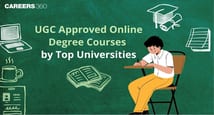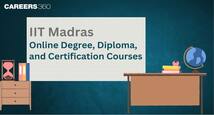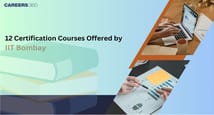- Need of a 1D thermodynamic simulation tool
- Overview of GT-POWER, GT valve train, GT cool, GT drive, etc.
- Introduction to GUI
- Templates and libraries
- Representation of engine parts
- Implicit vs Explicit approach
- Navier Stoke equation relevance
IC Engine Calibration using GT-POWER and GT-SUITE
Understand the working of an internal combustion engine by pursuing the IC Engine Calibration using GT-POWER and ...Read more
Beginner
Online
3 Months
Quick Facts
| particular | details | |||
|---|---|---|---|---|
|
Medium of instructions
English
|
Mode of learning
Self study, Virtual Classroom
|
Mode of Delivery
Video and Text Based
|
Course overview
IC Engine Calibration using GT-POWER and GT-SUITE course is being imparted by Skill Lync to provide the learner's knowledge about calibration of IC engines. Skill-Lync provides industry-relevant courses for engineering students with the help of industry experts. Diesel and gasoline engines have great amounts of potential for combustion refinement.
Achieving high fuel efficiency combined with good performance and drivability is important but so is focusing on the lowest possible engine-out emission. All of this depends upon calibration studies. GT-POWER and GT-SUITE are a part of the system-simulation domain as it uses sophisticated algorithms to solve fluid flow equations in composite electromechanical systems.
Participants will learn about the importance of calibration studies and their fundamentals and the methodologies behind the calibration of IC engines. This course will be beneficial for students who aspire to develop their career as a calibration engineer targeting internal R&D projects, product development/systems development engineer, IC engine calibration engineer, or 1D-3D thermodynamic system simulation engineer.
The highlights
- 100% Online delivery mode
- Flexible course plans
- Course certification from Skill Lync
Program offerings
- 100% online learning
- Video lectures
- Video support
Course and certificate fees
The fees for the course IC Engine Calibration using GT-POWER and GT-SUITE is -
| Head | Amount |
| Programme fees | Rs. 40,000 |
certificate availability
Yes
certificate providing authority
Skill Lync
Who it is for
This IC Engine Calibration using GT-POWER and GT-SUITE course is ideal for:
- All engineering students and freshers who wish to develop their careers in the automotive industry can take this course on the 1D thermodynamic simulation tool.
- Engineering students of final year and third year, Master’s students, or even Ph.D. students willing to use analysis tools in their projects can take this course.
Eligibility criteria
Education
In order to take up the IC Engine Calibration using GT-POWER and GT-SUITE course candidates should be either Aerospace engineers, Automotive engineers, or Mechanical engineers and must have a knowledge of IC engine concepts, Thermodynamics, and Fluid mechanics.
Certification Qualifying Details
Course certificate for IC Engine Calibration using GT-POWER and GT-SUITE course shall be given by Skill Lync to the participants who complete the course successfully. A merit certificate shall be given to the top five percent of the class.
What you will learn
Participants of the IC Engine Calibration using GT-POWER and GT-SUITE course shall have knowledge about the following:
- They will be able to understand the representation of engine parts
- Candidates will be able to acknowledge the challenges faced in SI engine modeling
- Participants will gain expertise in performance and emission prediction
- They will be able to grasp the correlations for ignition delay
- They will be able to understand how to improve overall engine performance, reduce pollutant formation
- They will be able to learn about chemical kinetics
- They will be able to acknowledge single-factor optimization
The syllabus
Week 1 : Introduction to GT-POWER and GT-SUITE
Week 2 : SI engine modeling techniques
- Challenges in si engine modelling
- Gas exchange modelling and analysis
- Tumble modelling
- Port injection and gasoline direct injection approach
- Combustion modelling approach
Week 3 : Case study on si engine
- Performance and emission prediction
- Engine specifications for modeling
Week 4 : CI engine modeling techniques
- Challenges in ci engine modelling
- Di pulse combustion modelling approach
- Turbocharger modelling
- Swirl modelling
Week 5 : Case study on ci engine
- Engine specifications for modelling
- Performance and emission prediction
Week 6 : Turbocharger and supercharger modeling
- Supercharger modelling
- Wastegate tc modelling
- Variable geometry turbine modelling
- Eturbo modelling
- Two-stage turbocharger modelling
- Fixed geometry to modelling
Week 7 : Case study on FRM builder
- Introduction to FRM builder
- Crank-angle resolved, the physically conservative formulation for accurate results
- Built-in doe and neural network trainer for mv model development
- Modeling of various engines using form builder approach
Week 8 : Aftertreatment modeling techniques
- Introduction to chemical kinetics
- Pre-defined test cases and scenarios
- Modelling precious metal catalysts
Week 9 : Case study on 3-way cat DOC DPF and SCR system
- Modelling 3-way cat con
- Modelling SCR
- Modelling doc
- Modelling dpf
Week 10 : Optimization techniques
- Design of experiments
- Single-factor optimization
- Case study on gas exchange optimization
- Multi-objective optimization
Week 11 : Discretization techniques
- Introduction to SpaceClaim
- Overview of gem 3d
- Discretizing exhaust manifold
- Discretizing intake manifold
Week 12 : Hybrid engine modeling
- Overview of hybrid system configuration
- Modeling of p0 and p1 configuration
- Built-in optimization and doe tools to evaluate architectures, components, and control strategies
Admission details
Filling the form
Candidates in order to seek admission for the IC Engine Calibration using GT-POWER and GT-SUITE course candidates have to follow the given steps:
Step 1: For further information about the course and for admission visit the website of the course.
Step 2: An option to enrol will be given on the webpage of the course.
Step 3: Candidates have to select the appropriate course plan and click on enrol now.
Step 4: Provide requisite details to continue further.
Step 5: The participants then need to make a fee payment to further access the course link and confirm their admission.
How it helps
The IC Engine Calibration using GT-POWER and GT-SUITE course is a chance for the learners to gain knowledge about internal combustion engines and their working. They will have a clear understanding of the usage of GT-Power tools for system designing, engine modelling techniques, optimization post-processing, and calibration of engines post-processing techniques.
They will be working upon industry-relevant projects and practicing on tools and software which will enable them to gain theoretical as well as empirical knowledge. Their skills and knowledge will make them an asset for their companies and give them an edge over the others in the industry. They will be able to apply for higher profiles at various companies and increments at their workplace.
Working professionals will be able to complete this course according to their flexibility and at the comfort of their homes. Online lectures will make it convenient for the participants to pursue this course and complete it successfully. They will be given all kinds of support for doubts clarification.
They will be given telephone, email, WhatsApp, and even a dedicated support engineer to solve their doubts and queries. They can link their technical projects and their project portfolio to make their work profile stronger. A course certificate will definitely add weight to the resume of the participants. They will also be given assistance in resume building and developing their LinkedIn profile. They will also be prepared for their interviews thoroughly.
FAQs
Who will instruct this course?
The course will be instructed by industry experts who are working with Fortune 500 companies.
What is included in the learning process?
Post enrolment, participants will be provided access to the study material and will be given assignments every week.
What is the system for doubt clarification?
Doubt clarification can be done by way of videoconferencing, individual online sessions, and telephone support, and also in person. A dedicated support engineer will also be assigned to the participants to clarify any doubts that may arise.
How is this different from college courses?
Through this course, the participants can implement their learning and gain the required practical experience. It will bridge the gap between academia and industry.
Which topics are covered in this course?
This course covers engine design, which is a complex topic and requires knowledge of thermodynamics, heat transfer and fluid mechanics. It also covers the challenges being faced by the industry and how system design tools like GT-Power can be used to handle these challenges efficiently.
How is 1D simulation different from 2D and 3D?
2D/3D simulations display the interaction of individual components with their surroundings while 1D simulations display the entire design of a system and the interactions of the different elements of the system.
Which software skills will the participants learn?
Participants will learn the use of tools for pre and post-processing. They will understand the gas exchange process, the need for a variable valve train system, forced induction selection methodology, importance of advanced turbocharging and supercharging systems.
What is the real world application of these tools?
As the emission norms have taken a place in the real-world called Real Driving Emission (RDE) norms, simulation tools have become for facing these challenges in a cost-effective manner and building optimized design in a short time.
Which companies are using these techniques?
Some of the companies using these techniques are Cummins India and USA, Jogn Deere India and the USA, and Maruti Suzuki.
Articles
Popular Articles
Similar Courses
Courses of your Interest

Theory Of Computation
IIT Kanpur via Swayam

Basics of CATIA V5
Skill Lync

Introduction to Urban Geo Informatics
The Hong Kong Polytechnic University,... via Edx

Urban Design for the Public Good Dutch Urbanism
Delft University of Technology via Edx

Digitalization of Intelligent and Integrated Energ...
Delft University of Technology via Edx

Monotsukuri Making Things in Japan Mechanical Engi...
Institute of Science Tokyo, Tokyo via Edx

Model Based Systems Engineering Foundations
IsraelX via Edx

So You Want to Be a Biomedical Engineer
UC San Diego via Edx
More Courses by Skill Lync

Advanced CFD Meshing using ANSA
Skill Lync

Embedded C Essentials
Skill Lync

Introduction to Automotive Electronics
Skill Lync

Reinforced Cement Concrete Design
Skill Lync

Core and Advanced Python Programming
Skill Lync

Construction Planning using Primavera P6
Skill Lync

Business Analyst Fundamentals for Beginners
Skill Lync


 Brochure
Brochure Enquire
Enquire














